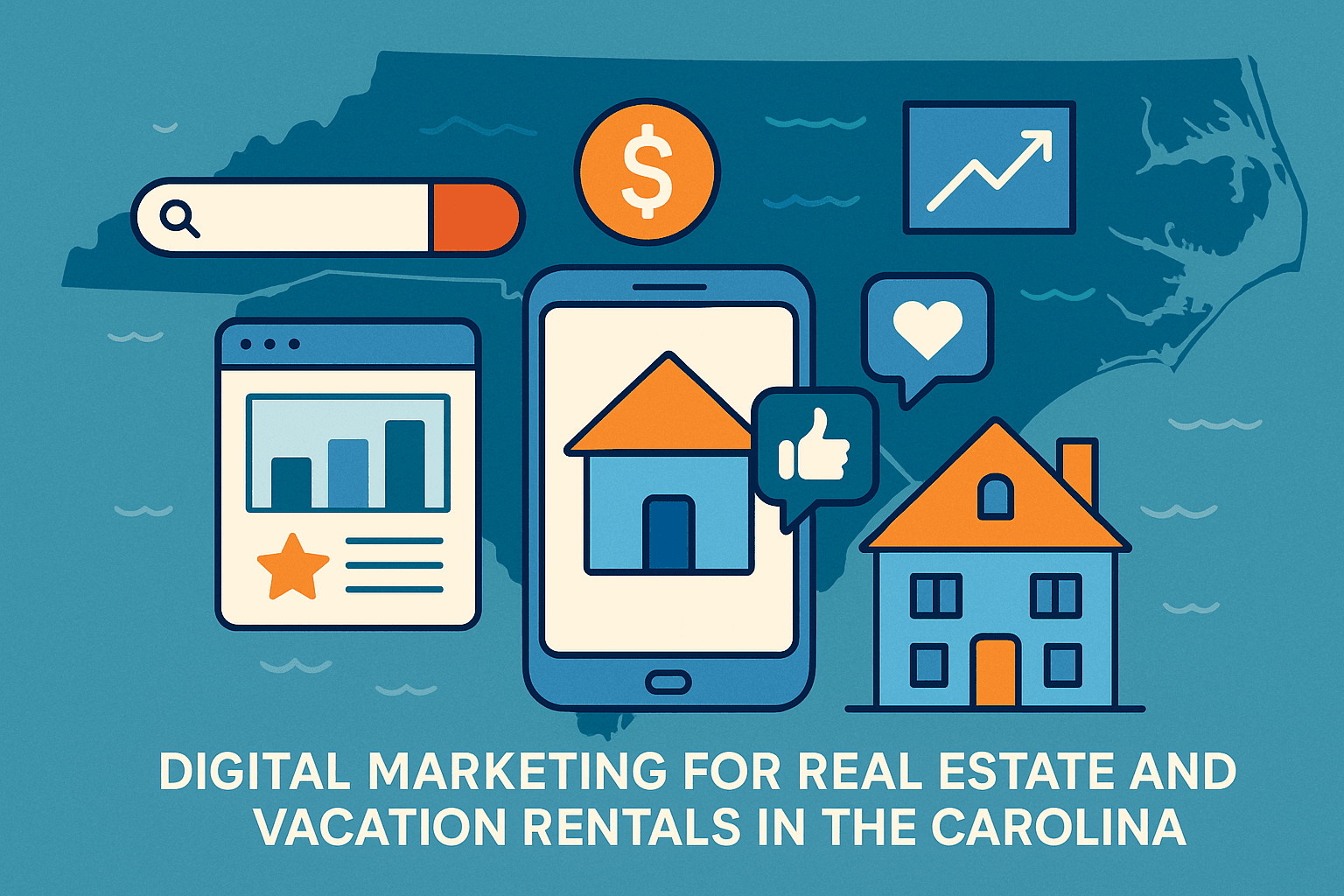Having a new website built for your business is an exciting milestone. It represents a significant investment of time, money, and effort. Naturally, you anticipate a surge in visitors, customers, and overall engagement. However, reality often hits hard when you find that weeks or even months after the launch, your website traffic is disappointingly low. This situation is frustrating but not uncommon. This blog post will explore the reasons behind this issue, focusing on the time it takes for search engines to find and index new websites, the ranking process, and strategies you can implement to speed up this process and increase traffic to your website.
Understanding the Search Engine Process
Crawling, Indexing, and Ranking
Search engines like Google follow a three-step process to deliver search results: crawling, indexing, and ranking.
- Crawling: This is the process by which search engines discover your website. Search engines use bots, known as spiders or crawlers, to scan the internet for new content. These bots follow links from other pages to discover new pages.
- Indexing: Once the crawlers discover your site, the content is analyzed and stored in a database. This process is known as indexing. It involves understanding the context and relevance of your content to specific search queries.
- Ranking: After your website is indexed, it is evaluated and ranked based on numerous factors, including relevance, quality of content, and user experience. The higher your website ranks, the more likely it is to appear on the first page of search results.
Timeframe for Indexing and Ranking
It’s essential to understand that this process takes time. For a brand-new website, it can take anywhere from a few days to several weeks for search engines to crawl and index your site. Ranking, on the other hand, can take several months. This delay is due to various factors, including the need for search engines to evaluate the credibility and relevance of your site compared to others in the same niche.
Factors Influencing Search Engine Indexing and Ranking
1. Content Quality
Quality content is the cornerstone of a successful website. Search engines prioritize websites that offer valuable, informative, and engaging content. This means that your content should be well-written, thoroughly researched, and provide real value to your audience.
2. Website Structure and Navigation
A well-structured website with clear navigation helps search engines crawl and index your site more efficiently. This includes having a logical hierarchy, using descriptive URLs, and ensuring that all pages are accessible through internal links.
3. Mobile-Friendliness
With the increasing use of mobile devices, search engines have placed a significant emphasis on mobile-friendly websites. Ensure your website is responsive and provides a seamless user experience across all devices.
4. Backlinks
Backlinks, or links from other reputable websites to your site, play a crucial role in search engine ranking. They act as endorsements, signaling to search engines that your content is valuable and trustworthy.
5. Page Load Speed
Page load speed is a critical factor for both user experience and search engine ranking. A slow-loading website can lead to higher bounce rates and negatively impact your ranking. Optimize your images, leverage browser caching, and use a content delivery network (CDN) to improve your page load speed.
6. On-Page SEO
On-page SEO refers to the optimization of individual web pages to rank higher and earn more relevant traffic in search engines. This includes optimizing your title tags, meta descriptions, headers, and ensuring your content includes relevant keywords.
Strategies to Increase Traffic to Your Website
While patience is essential, there are several strategies you can implement to expedite the process of getting your website indexed and ranked by search engines.
1. Submit Your Website to Search Engines
One of the first steps you should take is to submit your website to search engines like Google. You can do this through Google Search Console. By submitting your sitemap, you’re essentially telling Google, “Hey, my website is here, please come and crawl it.” This is one of the easiest ways to increase traffic to your website.
2. Create High-Quality Content Regularly
Consistently publishing high-quality content signals to search engines that your website is active and regularly updated. This can encourage search engines to crawl and index your site more frequently. Focus on creating content that addresses the needs and interests of your target audience.
3. Optimize Your Website for SEO
SEO is not a one-time task but an ongoing process. Ensure that all your pages are optimized for relevant keywords. Use tools like Google Keyword Planner to identify keywords that your target audience is searching for. Incorporate these keywords naturally into your content, titles, and meta descriptions. See our post on quick SEO Tips
4. Build Backlinks
Backlinks are one of the most effective ways to boost your website’s credibility and ranking. Reach out to other reputable websites in your niche and request backlinks. Guest blogging, collaborations, and creating shareable content like infographics can also help you earn quality backlinks.
5. Leverage Social Media
Social media can drive traffic to your website and increase its visibility. Share your content on platforms where your target audience is active. Encourage social sharing by adding social media buttons to increase traffic to your website. Engaging with your audience on social media can also boost your website’s credibility and drive more traffic. We have a great post on social media tips for small to medium size businesses.
6. Monitor and Analyze Your Performance
Use tools like Google Analytics and Google Search Console to monitor your website’s performance. These tools provide valuable insights into how your website is performing, what’s working, and what needs improvement. Regularly analyzing this data can help you make informed decisions to enhance your website’s visibility and ranking.
7. Ensure Mobile-Friendliness
As mentioned earlier, mobile-friendliness is crucial for both user experience and search engine ranking. Use Google’s Mobile-Friendly Test tool to check how easily a visitor can use your page on a mobile device. If your site isn’t mobile-friendly, work with your web developer to make necessary adjustments.
8. Improve Page Load Speed
Page load speed is a critical factor for both user experience and search engine ranking. Use tools like Google PageSpeed Insights to analyze your page load speed and identify areas for improvement. Compressing images, leveraging browser caching, and using a CDN can significantly improve your site’s load speed.
The Importance of Patience and Persistence
While these strategies can help speed up the process, it’s important to remain patient and persistent. Building a successful online presence takes time. Search engines need to trust your website’s credibility and relevance, which doesn’t happen overnight. Consistently implementing these strategies, monitoring your performance, and making necessary adjustments will eventually lead to increased visibility and traffic.
The journey from having a newly built website to seeing significant traffic and engagement can be long and challenging. Understanding the search engine process, the factors influencing indexing and ranking, and implementing effective strategies can help speed up this journey. However, patience and persistence are key. By continuously optimizing your website, creating high-quality content, and building a strong online presence, you will eventually see the results you’re aiming for. Remember, success doesn’t happen overnight, but with consistent effort and the right strategies, your website will gain the visibility and traffic it deserves.
Creating a successful website is a marathon, not a sprint. By understanding the intricacies of how search engines work and implementing these tried-and-tested strategies, you’ll be well on your way to achieving the online success you’ve envisioned. Stay patient, stay persistent, and most importantly, stay focused on providing value to your audience.
Continue Exploring!
If you run a plumbing, electrical, or HVAC business in Charlotte, Lake Norman, or anywhere across the Carolinas, you already know how competitive the home [...]
From the beaches of Myrtle Beach to the growing neighborhoods of Charlotte, the real estate and vacation rental markets in the Carolinas are more competitive [...]
Most dental practices rely on referrals and repeat patients, but in a competitive area like Lake Norman, that may not be enough to fill your [...]
Running an online store in Charlotte is exciting — but also competitive. Whether you sell fashion, home goods, or specialty products, you’re up against both [...]
Share This Story, Choose Your Platform!
Propel Your Business with 301 Branding
At 301 Branding, we grasp the unique dynamics of your business. Our digital presence marketing strategies are tailored to highlight your strengths, and build a commanding online presence. Let’s transform how the world sees your business and enhance your path to success.




